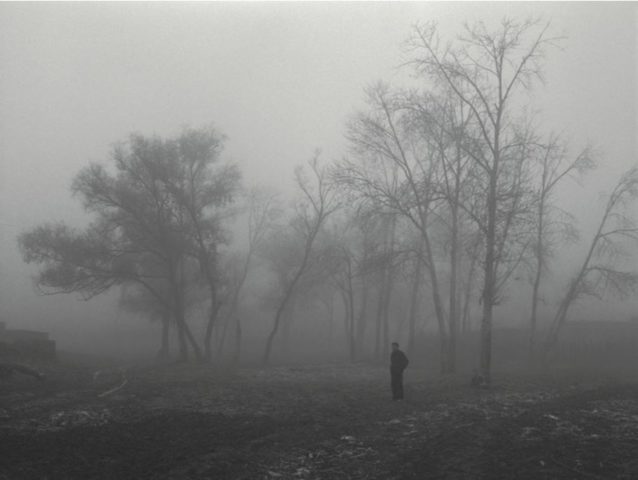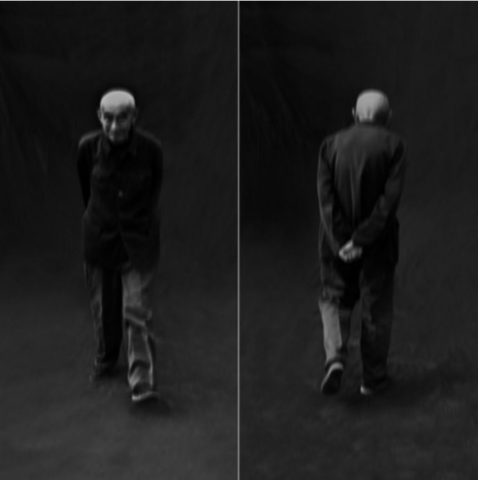

Arthub Favorite: Week 30
Over the last century, Northeast China has undergone a series of radical changes, which have resulted in distinct generational gaps. Individual memory and nostalgia are heavy topics to say the least. The growing differences between each generation make relative conversation difficult at times and very few choose to look back retrospectively over the land. Though they tread the same ground, few citizens want to confront the reality of the historical undercurrent they are immersed within.
This week Arthub would like to recommend artist Hai Bo from Changchun and his new solo exhibition at Pace Hong Kong. The artist’s works use the theme of family to convey the vast, desolate northern wilderness he calls home, and the people who pass over its yellow soil.
Opening: July 28, 2016, 18:00 – 20:00
Duration: July 29 – September 14, 2016
Venue: Pace Hong Kong
15C Entertainment Building, 30 Queens Road Central
Hai Bo focuses on the ordinary moments behind our complex reality, concealing weighty narratives and perceptions within easily overlooked rural scenes. Through the unique tension between the eternal and ephemeral in photography, these ordinary people and things are able to convey the unavoidable changes in times, history and the individual, to great emotional impact.
The Pace Hong Kong exhibition will present eight of Hai Bo’s works, including seven works from the Northern Series. A signature series in the artist’s oeuvre, the Northern Series uses the theme of family to convey the vast, desolate northern wilderness he calls home, and the people who pass over this yellow soil. Since 1982, Hai Bo has created many photographic works in his native northeastern China, expressing this stark beauty in his own unique way, and bearing witness to this individualized history.
Hai Bo’s maternal uncle features frequently in the Northern Series. Remembered as a strong and somewhat wild figure, time has reshaped Hai Bo’s uncle into a quiet old man. On the rare occasion the uncle has given accounts of the past, Hai Bo has recorded it, giving it the title Northern Series — End of Story. At the moment he pressed the shutter, the artist sensed the end of an era. The once familiar scenes, people and lives have all passed, and China has gradually progressed from an agrarian civilization to a modern one. In this process, the drastic change that has come to China has made it so that history is no longer an abstract concept but an intimate experience. More than individual catharsis and nostalgia, Hai Bo’s creations are a form of resistance against change.
Another work in the Northern Series featured in the exhibition, 2008-1, also features the artist’s uncle. This now gentle old man gradually emerges from the shadows. “Their today is our tomorrow,” says Hai Bo, “In the end, we all belong to the dust.” This exhibition will also present the work Fable from the Photographic Diary series. This series is infused with Hai Bo’s signature poeticism, using seemingly scattered fragments to document memories as they slip away, effecting a recollection of memory with a light hand.
Hai Bo’s works are featured in numerous public collections including the Metropolitan Museum of Art, the J. Paul Getty Museum, Museum of Modern Art(MoMA), Smithsonian’s Arthur M. Sackler Gallery, the Queensland Art Gallery. His selected solo exhibitions include Hai Bo at Pace Beijing, Beijing (2012) and Pace/MacGill Gallery, New York (2011); Perspectives: Hai Bo at Smithsonian’s Arthur M. Sackler Gallery, Washington DC (2010). Recently, he was included in the following exhibitions: The China Project at Gallery of Modern Art and Queensland Art Gallery, Queensland, Australia (2009); Journeys: Mapping the Earth and Mind in Chinese Art at Metropolitan Museum of Art, New York, U.S.A (2007); Between Past and Future: New Photography and Video from China at ICP and Asia Society, New York, U.S.A (2004) and The 49th Venice Biennale, Venice, Italy (2001).
About Artist
Hai Bo (b. 1962, Changchun, China) graduated from Printmaking Department of the Fine Art Institute of Jilin in 1984. His artistic ideals involve the restoration of the past through photography. Hai Bo’s work is less about what changes through time and more about what endures. His photography often depicts people shown in various stages of life as well as the passage of time. Hai Bo turns his gaze toward the stars, rivers, and mountains, where he sees a durable natural rhythm that can affect all people and serve as an inspiration to artists. He is a retiring solitary man, who, besides nature, loves literature and poetry. He spends most of his time at his home in the far reaches of Beijing, working in studio surrounded by high gray brick walls. There he immerses himself in his books, his memories, and the careful study of the photographs he has collected through years.